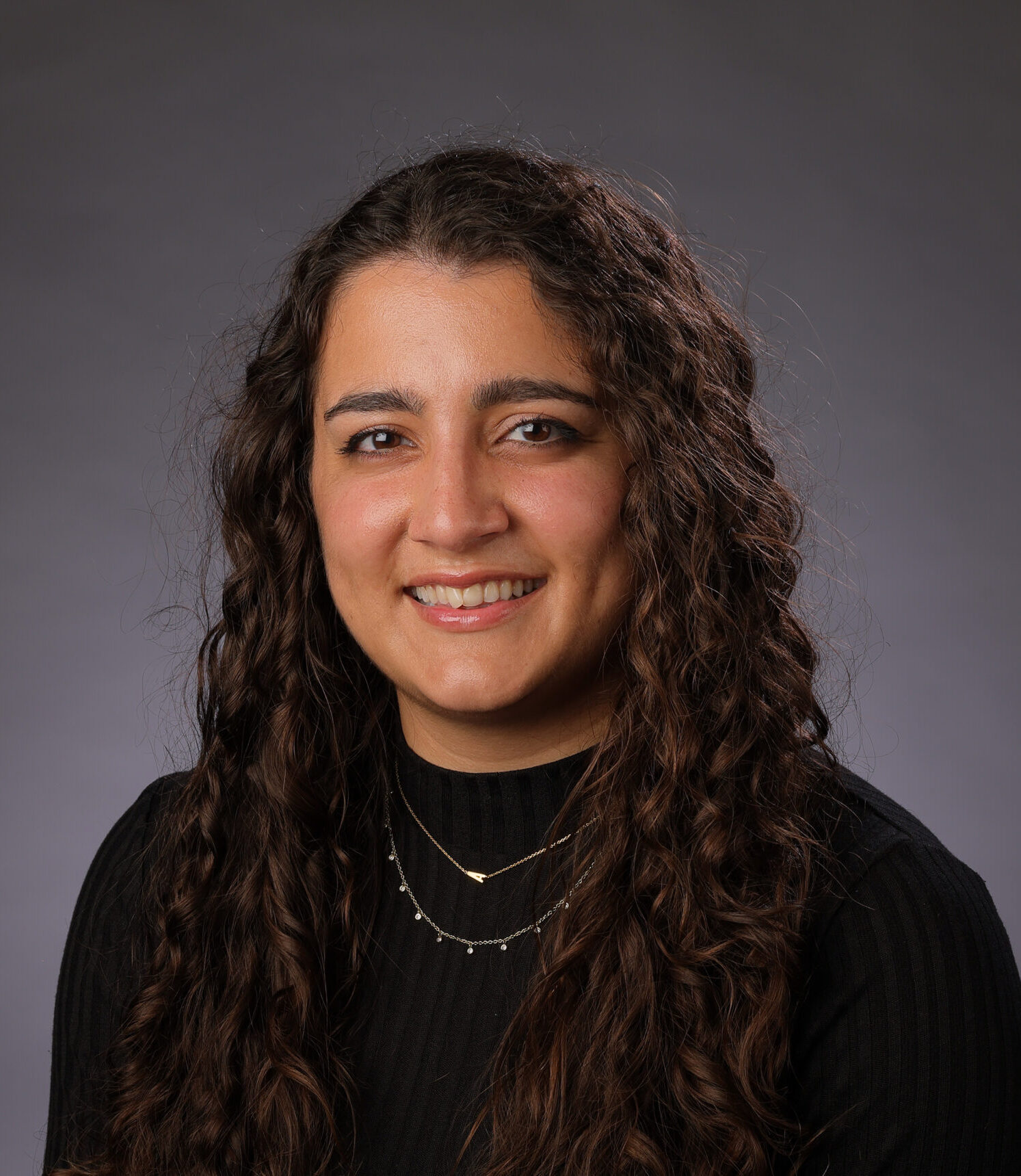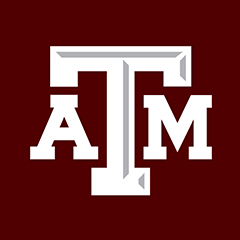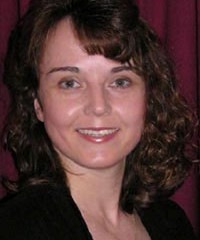
Graduate Degrees
Our graduate program in nutrition utilizes a collaborative approach, featuring faculty experts from a number of departments at Texas A&M. Our program offers students the opportunity for advanced studies in human nutrition with emphasis in the broad fields of basic, molecular nutrition or applied human nutrition. Students can gain expertise in the areas of nutritional biochemistry, physiology, immunology, and/or molecular biology, while applied nutrition candidates may be interested in clinical, community or international nutrition research.
| Fall Applications Deadline | Spring Applications Deadline |
|---|---|
| December 1 | September 1 |
Applications are accepted on a rolling basis; however, students interested in funding opportunities need to apply by December 1.
* Programs with additional requirements and deadlines: Master of Clinical Nutrition
Master’s Degrees
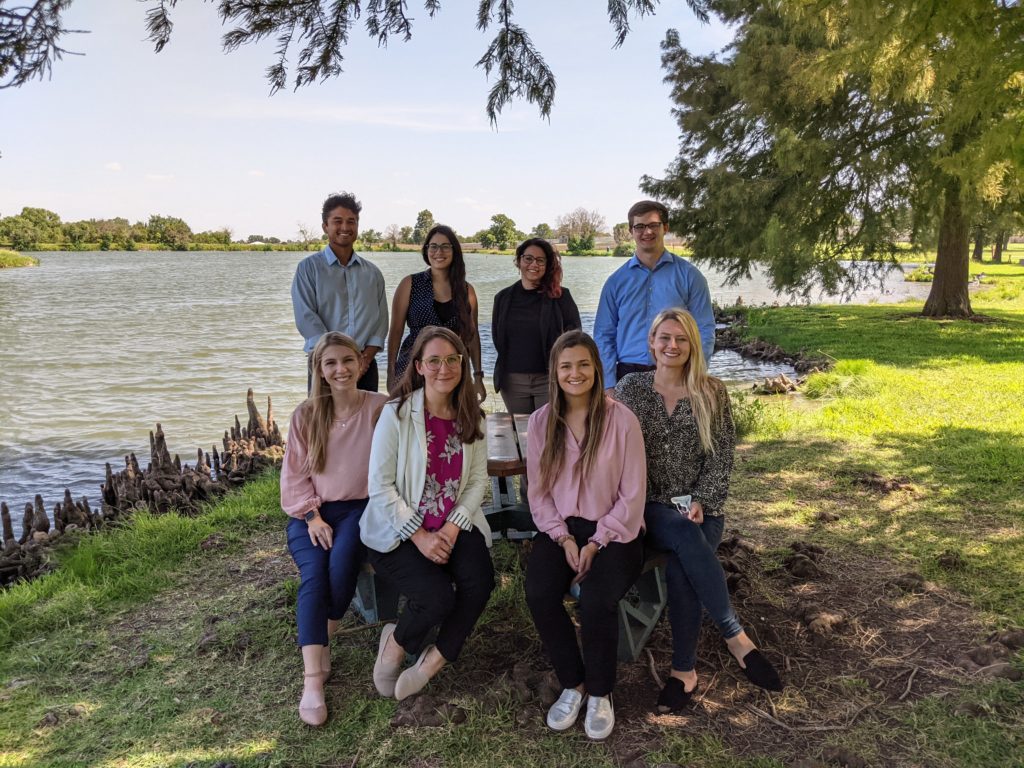
Master of Clinical Nutrition Dietetic Internship
This program combines a science-based education with a variety of supervised practice experiences to prepare students to be effective registered dietitian nutritionists.
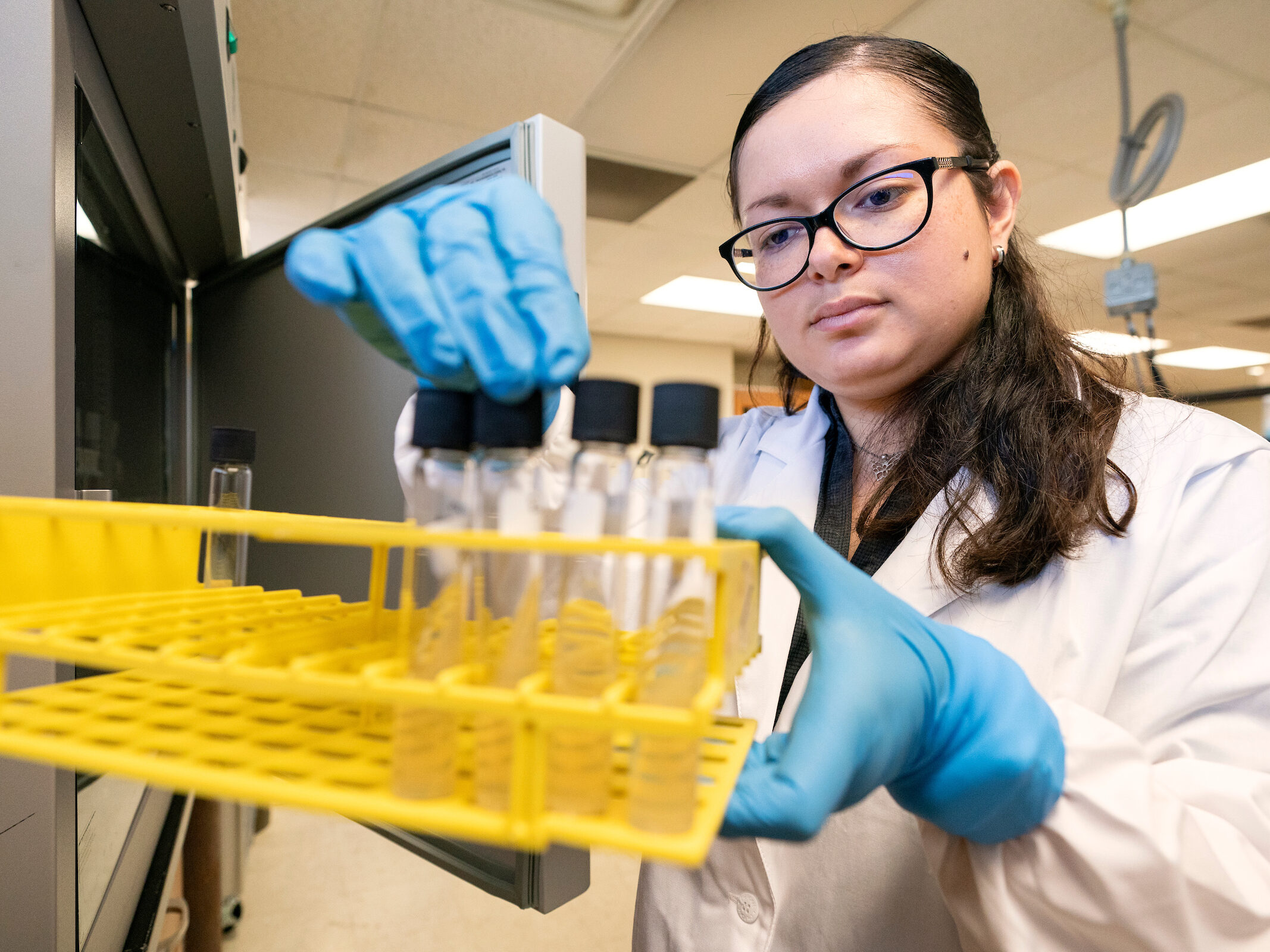
Master of Science in Nutrition
Build on core curriculum courses in nutrition, biochemistry, physiology, and statistics, this degree provides professional training for students interested in performing specialized research in one of the many fields under basic or applied human nutrition.

Master of Science in Nutrition and Kinesiology Combined Degree
This combined degree provides integrative training for students who intend to become licensed practitioners in sport or clinical settings.
Doctor of Philosophy in Nutrition
The doctoral program in nutrition allows emphasis in the broad fields of basic, molecular nutrition or applied human nutrition. Students are required to complete the core curriculum in nutrition which includes courses in nutrition, biochemistry, physiology, and/or epidemiology and biostatistics. We offer two routes to the Ph.D: a 64-credit hour route for those who have completed a master’s degree, and a 96-credit hour option for those who have only completed a bachelor’s degree.
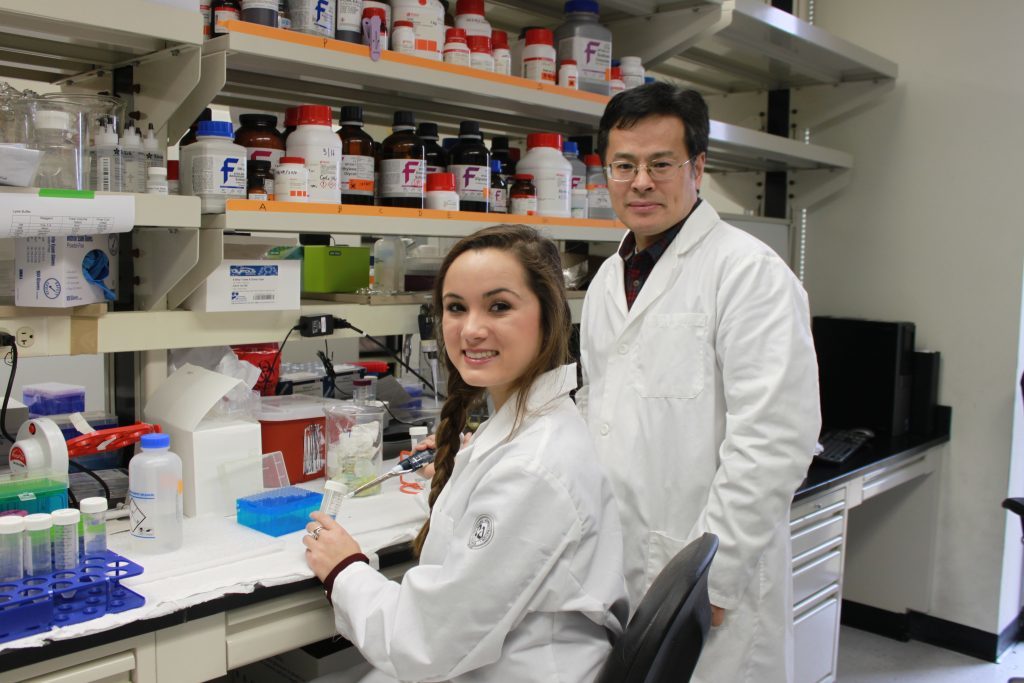
Graduate Funding Opportunities
A number of fellowship and scholarship opportunities are available to graduate students. Most competitive funding opportunities provide a nonresident tuition waiver. Check with the department graduate office and the Graduate & Professional School at Texas A&M University for details. Students holding fellowships should check the current graduate catalog to determine registration requirements. Students holding graduate assistantships or fellowships should verify registration requirements with the Department of Nutrition Graduate Office.
Graduate Program Feedback
Contact a Graduate Advisor
Serina DeSalvio
Program Coordinator II
Tyler Fadal
Graduate Programs Coordinator, Program Manager
Meet Our Graduate Faculty
Robert Chapkin
Allen Endowed Chair in Nutrition & Chronic Disease Prevention, Distinguished Professor, Regents Professor, University Faculty Fellow, and NCI R35 Outstanding Investigator
Mahua Choudhury
Associate Professor, Department of Pharmaceutical Sciences
(361) 221-78363
Delbert Gatlin
Professor & Associate Department Head for Research and Graduate Programs, Department of Ecology and Conservation Biology
Shaodong Guo
Professor Department of Nutrition, Presidential Impact Fellow
Bradley Johnston
Associate Professor Department of Nutrition; Director of EvidenceBasedNutrition.org
Suite 127, Cater-Mattil Hall, College Station, Texas
Richard Kreider
Professor, Department of Kinesiology and Sports Management
Bhimanagouda Patil
Professor, Department of Horticultural Sciences
Horticultural Science
Beth Racine
Professor, Associate Department Head for Extension, Texas A&M AgriLife Research Center at El Paso Director
915-859-9111
Catharine "Cathy" Ross
Professor Department of Nutrition
Rebecca Seguin-Fowler
Associate Director, Institute for Advancing Health through Agriculture / Professor / Certified Strength and Conditioning Specialist (CSCS) / Registered Dietitian (RDN)
Dallas, Texas
Stephen B. Smith
Professor of Meat Science, Department of Animal Science
Yuxiang Sun
Professor Department of Nutrition, Associate Department Head for Graduate Programs, Chancellor EDGES fellow, AgriLife Research Faculty Fellow
Masako Suzuki
Assistant Professor Department of Nutrition
Jacob Szeszulski
Assistant Professor
Susanne Talcott
Associate Professor, Department of Food Science & Technology
Luis Tedeschi
Professor of Animal Nutrition, Department of Animal Science
David Threadgill
Department Head Department of Nutrition, Distinguished Professor
Heidi Vanden Brink
Assistant Professor Department of Nutrition
Rosemary Walzem
Professor, Department of Poultry Science
Chia-Shan "Jenny" Wu
Instructional Assistant Professor Department of Nutrition
Linglin Xie
Associate Professor Department of Nutrition
Kurt Zhang
Associate Professor; Director of Rigor & Reproducibility Core
